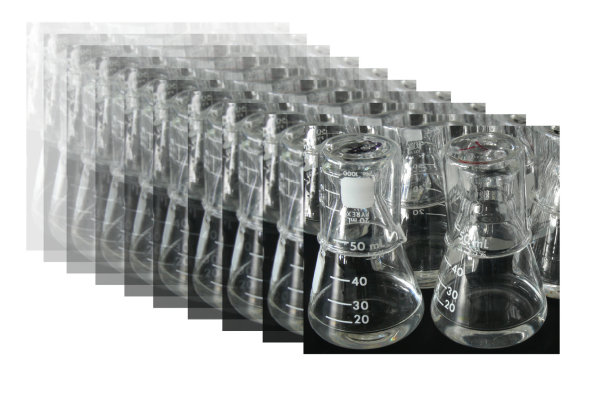 Exceptional conference with Richard Lenski and Guillaume Beslon on 11/18/19
Exceptional conference with Richard Lenski and Guillaume Beslon on 11/18/19



We will have the honour of welcoming Richard Lenski, Professor at Michigan State University, founder of the world's longest ongoing evolution experiment, the LTEE project for the Long-Term Experimental Evolution of Escherichia coli bacteria, as well as Guillaume Beslon, Professor in Computer Science at the LIRIS & INSA-Lyon laboratory, specialist in computational biology, artificial life and in silico experimental evolution.
Both are invited for an exceptional conference by Professor Dominique Schneider, teacher-researcher of the TIMC-GEM team, which has been collaborating for more than 20 years with Richard Lenski on the LTEE experiment, notably via EvoAct, "Evolution in action with living and artificial organisms", the CNRS Associate International Laboratory (LIA) created since 2015.
- Date : Monday, november 18th, 2:00pm
- Place : Amphi Supérieur Sud, bât Jean Roget, Faculté de Médedine et Pharmacie, La Tronche.
 The two guests will speak on the following topics:
The two guests will speak on the following topics:
-----------
Richard Lenski
"Dynamics of Phenotypic and Genomic Change in a Long-Term Evolution Experiment with E. coli"
Abstract: Evolution is an on-going process, one that can be studied experimentally in organisms with rapid generations. We have watched 12 populations of Escherichia coli evolve in a simple environment for over 30 years and 70,000 generations. The aims of this experiment are to characterize the tempo and mode of evolution, and to examine the repeatability of the phenotypic and genomic changes. With students and collaborators, we have quantified the dynamics of adaptation by natural selection, documented many cases of parallel evolution, observed changes in the underlying mutation rate, and seen the appearance of a new metabolic function that transcends the usual definition of E. coli as a species. We have sequenced hundreds of complete genomes to find the mutations in time-series of samples from the populations. These genomic data provide insights into the dynamic coupling of phenotypic and genotypic evolution during periods of optimization and innovation.
----------
Guillaume Beslon
"In silico experimental evolution, a modelling insight into the complexity of biological systems"
Abstract: The evolutionary origin of the complexity of biological systems is an issue that has been intriguing the scientific community for decades. Two main hypotheses have been proposed to explain the apparent trend toward complexity increase. According to the first one, the complexity of biological systems is due to selective factors (the more complex organisms having a higher fitness). According to the second one, the mutational process is the sole responsible (complexity being mechanically due to the accumulation of mutations). The debate is difficult to resolve because it is essentially based on thought experiments and no simple assay makes it possible to address this issue. In such a context, the modeling appears as a middle way: more rigorous than a thought experiment, it makes it possible to carry out ``impossible experiments'' by testing parameters settings (or situations) that would be intractable in practice.
In the context of Darwinian evolution, we have developed the Aevol model with the objective of performing virtual experiments to isolate the evolutionary mechanisms impacting the molecular structure of biological systems. Using Aevol, we are able to evolve virtual organisms into different environments, some favouring simple organisms, some favouring complex organisms. Our results show that complexity increases in both situations but also that this increase is not due to the sole mutational process. These results open the way to a third explanation: the existence of a “complexity ratchet” rooted in the historical nature of the evolutionary process.
